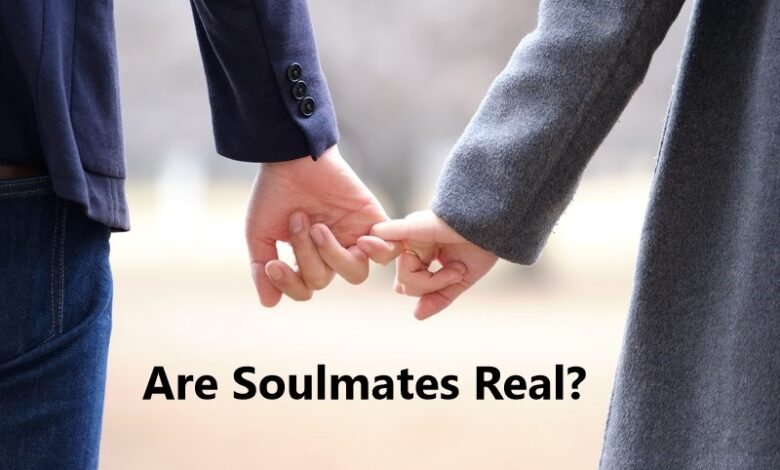Are Soulmates Real?

Are Soulmates Real?
The concept of soulmates has been around for centuries, but is there any truth to the idea that there is one person out there who is meant to be our perfect match? While some people swear by the existence of soulmates, others are more skeptical. So, are soulmates real? Let’s take a closer look.
First, it’s important to define what we mean by “soulmate.” For some, a soulmate is simply a person with whom they have a strong connection or a deep sense of understanding. For others, a soulmate is the one person in the world who is their perfect match. Someone they are meant to spend the rest of their life with.
The Science Behind Our Mates
From a scientific standpoint, the concept of soulmates is difficult to prove or disprove. While there is no evidence to suggest that there is only one person in the world who is meant to be our perfect match. There is also no evidence to suggest that such a person doesn’t exist. Some experts argue that a soulmate is more of a romantic notion than a scientific fact.
However, there is some research suggests that people who believe in soulmates may have healthier relationships. A study published in the Journal of Social and Personal Relationships found that people who believe in soulmates tend to view their relationships. As more fulfilling and satisfying than those who do not.
Myth Versus Reality
Myth versus reality is a comparison between what people believe to be true and what is true. Myths are often based on stories, legends, or traditions that have been passed down over time. While reality is based on evidence, facts, and data. Sometimes myths can be harmless or even fun, but other times they can be harmful or misleading.
It’s important to distinguish between myth and reality to make informed decisions and avoid making assumptions based on false information. This can apply to many areas of life, from cultural beliefs and stereotypes to scientific theories and political claims. By critically evaluating the evidence and seeking out reliable sources. We can better understand the world around us and make informed choices.
A Different Type of Love
When people talk about love, they usually mean romantic love, the kind that is shared between two partners in a committed relationship. However, many other types of love can be just as important and fulfilling. For example, there is love between family members, which is often unconditional and lifelong.
There is also love between friends, which can be supportive, playful, and enduring. And there is the love of humanity or the world, which can inspire people to work for justice, peace, and equality. Each of these types of love is different, but they all involve a deep feeling of care, connection, and commitment.
By recognizing and valuing these different types of love, we can expand our capacity for compassion and understanding, and cultivate more meaningful relationships with ourselves and others.
A Word for the Skeptics
For the skeptics out there, the concept of love may seem overhyped or even nonsensical. After all, love is often depicted as an all-consuming emotion that can blind people to reality, cloud their judgment, and even cause them to do irrational or dangerous things. However, it’s important to remember that love is a complex and multifaceted phenomenon that can take many different forms.
Love can inspire great acts of bravery and sacrifice, but it can also encourage kindness, generosity, and empathy. Whether or not we believe in love, it’s clear that it plays a powerful role in human relationships and can have a profound impact on our lives.
For those who are skeptical about love, it may be helpful to approach it with an open mind, question assumptions, and explore different perspectives and experiences.
What We Won’t Do For Love
Love can be a powerful motivator, driving people to do incredible things for the people they care about. However, there are also limits to what we are willing to do for love.
For example, most people would draw the line at committing crimes, betraying their values, or endangering their safety or the safety of others. Love should never be an excuse for abusive or harmful behavior, and it’s important to recognize and respect our boundaries and the boundaries of others.
Conclusion
In conclusion, the concept of love is a complex and multifaceted phenomenon that has fascinated people for centuries. While there are many different types of love and many different ways to experience it, it’s clear that love plays a powerful role in human relationships and can have a profound impact on our lives.
Whether we believe in “the one” or multiple potential partners, whether we focus on romantic love or other types of love, and whether we are skeptics or true believers, the fact remains that love has the power to inspire, connect, and transform us. By recognizing and valuing the different forms of love in our lives, we can cultivate deeper connections, greater compassion, and a greater sense of purpose and fulfillment.
Frequently Asked Question
- What is love?
A: Love is a complex and multifaceted emotion that can take many different forms, from romantic love between partners to love between family members, friends, and even the love of humanity or the world.
2. Is there such a thing as “the one” or soulmates?
A: This is a topic of debate, with some people believing that there is only one perfect match for each person, while others believe that there can be multiple potential partners who are a good fit.
3. Can love be harmful?
A: Yes, love can be harmful if it involves abusive or controlling behavior or if it causes one to neglect their well-being or the well-being of others.
4. Can love change over time?
A: Yes, love can change over time as people grow and evolve, and as their relationships and circumstances change. However, the core feelings of care, connection, and commitment can remain constant.











